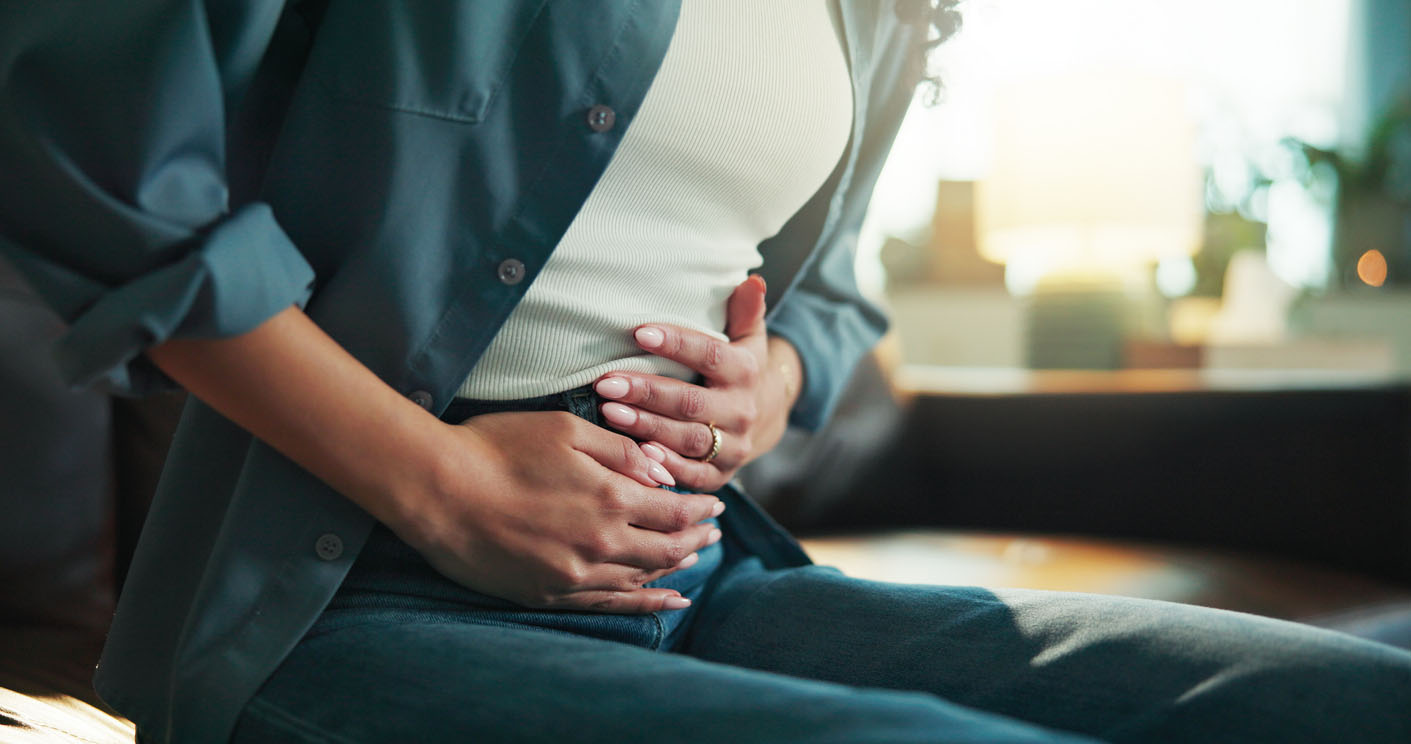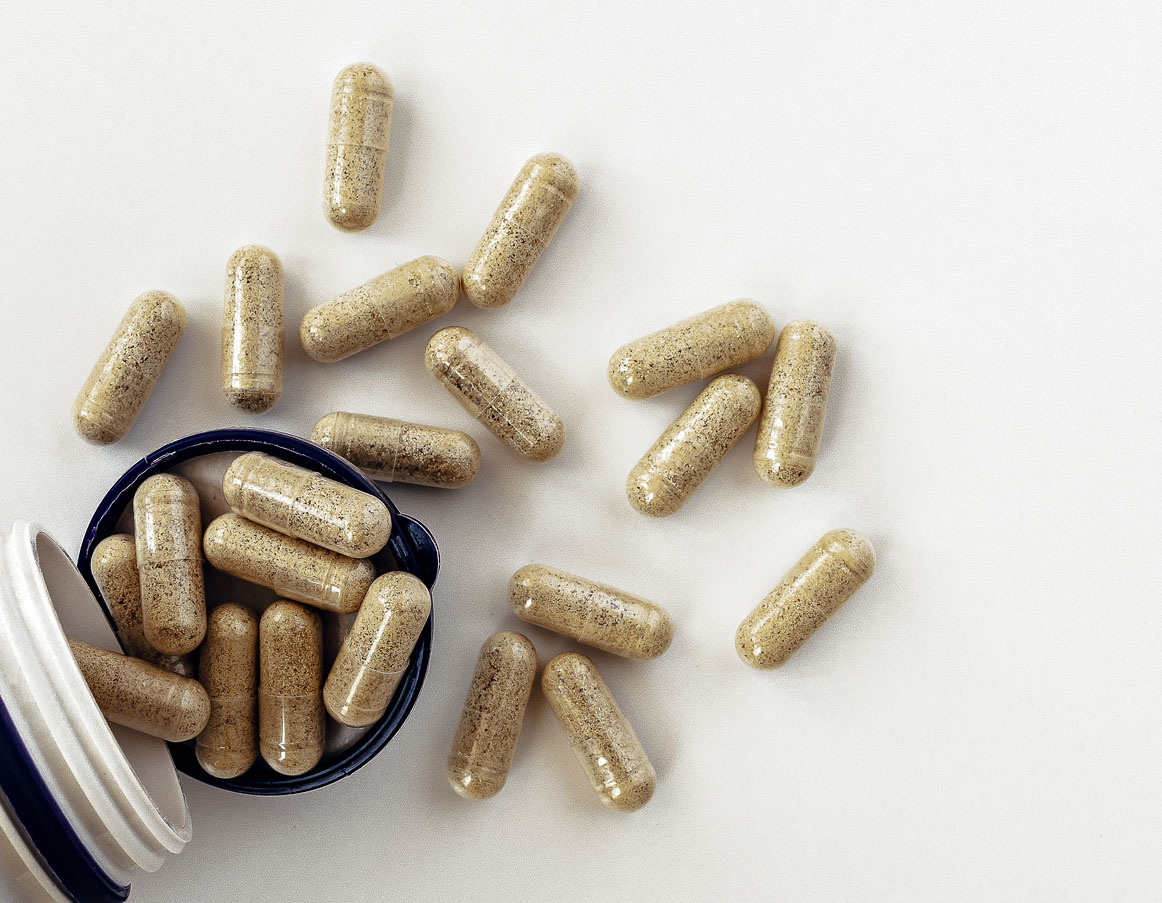Ulcerative colitis and Crohn’s disease are two conditions that have many features in common and are sometimes referred to as “inflammatory bowel disease” (IBD). While not as common as less severe conditions like “irritable bowel syndrome,” Crohn’s disease and ulcerative colitis now afflict hundreds of thousands of Americans. They appear to be increasing in frequency. Crohn’s disease was once a very rare disorder but it is gradually becoming more common. There are about twice as many cases of it today as there were 30 years ago. Moreover, these conditions are increasingly afflicting children and teenagers.
Symptoms include periodic attacks of cramps, abdominal pain and diarrhea, and a general sense of feeling ill. There may be fever, loss of appetite and weight loss. Especially in ulcerative colitis there may be rectal bleeding, diarrhea and mucous in the stool. These symptoms sometimes begin insidiously, gradually worsening, or sometimes they begin all at once with great severity.
These conditions must be diagnosed by a physician, usually a specialist in gastroenterology. The rectum and large intestine may be examined by sigmoidoscopy or colonoscopy. A biopsy specimen from the intestinal wall probably will be taken during one of these tests. Or an air-contrast barium enema or upper GI swallow with follow-through lower gastrointestinal X-rays may be given. A proper evaluation for inflammatory bowel disease usually will include stool tests to rule out parasite infection, which can easily mimic ulcerative colitis or Crohn’s disease, and blood tests to test the severity of the inflammation and blood loss.
Why should inflammatory bowel diseases be on the upswing? There are many theories but conventional medicine has not yet satisfactorily answered the question. Many gastroenterologists choose not to believe it, but dietary factors clearly play a role. For example, Swedish researchers have found that people who eat at fast-food restaurants regularly and who eat too much sugar may increase their risk of Crohn’s disease. Researchers from the Karolinska Institute in Stockholm interviewed 152 people with Crohn’s disease, 145 with ulcerative colitis and 305 healthy people about their eating habits in the five previous years. Those who ate fast-food at least two times a week were 3.4 times more likely to develop Crohn’s disease and 3.9 times more likely to develop ulcerative colitis, according to a recent issue of the Journal of Epidemiology. Fast-foods in the Swedish study consisted of hamburger or hot dogs with mustard and catchup plus fresh fries or cream potatoes and soft drinks. It also was noted that those who ate more than 55 grams of sugar per day were 2.6 times more likely to develop Crohn’s disease. Not surprisingly, an American expert in gastroenterology attempted to refute this study. He contended that IBD sufferers probably started eating the high sugar/high calorie foods in an effort to gain weight and chose foods low in fiber to reduce their diarrhea.
Another interesting theory is that the increase in IBD that has taken place in the past 50 years parallels the increasing use of antibiotics in human and veterinary medicine. Antibiotics can promote the proliferation of toxic bacteria and can make them more invasive. The epidemic-like spread of Crohn’s disease over roughly the past 50 years started with the introduction of antibiotics and developed in parallel with an increase in antibiotic consumption. A pair of German scientists hypothesized that Crohn’s disease is an infectious disease caused by a mutated form of normal bacterial flora that became a super germ under constant selection pressure from antibiotics. They note that treatment with antibiotics for other diseases can encourage the development of Crohn’s disease in susceptible individuals. An interesting correlation has been found between measles exposure early in life and the likelihood of Crohn’s disease. In a British study, the frequency of Crohn’s disease, ulcerative colitis and other stomach problems was evaluated in 3,545 people who had received live measles vaccines. The relative risk of developing Crohn’s disease in the vaccinated group was threefold and the development of ulcerative colitis was two-and-a-half fold. This study suggests an association between measles vaccination and inflammatory bowel disease.
In addition to dietary changes, which people in the West have undergone in the past half century, new unnatural products have been introduced into our gastrointestinal tracts. These include fluoridated and chlorinated water, the residue of dental fillings containing mercury, many common antacids containing aluminum and other potentially hazardous materials. A lively debate has taken place in recent years in medical journals about the potential role of toothpaste in contributing to inflammatory bowel disease. Researchers state that they have found pigments in the intestinal mucosa containing aluminum, silicon and titanium through electron microscopy and X-ray analytical techniques. In other studies, they have found not only toothpaste residues but traces of other materials used in dental work. They have suggested that further research be done on the role of toothpaste, food additives and synthetic food ingredients as possible causative agents in inflammatory bowel disease.
Clearly, infant feeding patterns may be related to the incidence of inflammatory bowel disease. Some studies have shown a correlation between lack of breast feeding and susceptibility to IBD. Also, the premature introduction of allergenic food such as cow’s milk, soy and difficult-to-digest fruit juices may accelerate development of IBD in children.
Drugs are the usual therapy for Crohn’s disease and ulcerative colitis. These include anti-inflammatory agents such as Azulfidine as well as steroids and immunosuppressant agents borrowed from the cancer arena. All these medications have side effects and often are ineffective. With ulcerative colitis, the ultimate “solution” is removal of the large intestine with ileostomy (external bag). For Crohn’s disease, however, surgery produces less conclusive results. Sometimes patients with Crohn’s disease are subjected to multiple surgeries with progressive shortening of their intestines until they are subject to the debilitating end game of short-gut syndrome.
The official “party line” of gastroenterologists is that diet doesn’t matter in IBD. Sometimes instructions are given to follow a “bland” diet and to avoid spicy, abrasive or laxative foods. A recent medical therapy text begrudgingly admits that “in the presence of the loss of appetite and diminished food intake, a once daily multivitamin supplement does not seem unreasonable.” Some patients are even placed on intravenous or tube feedings to “rest” their digestive tracts. Nevertheless I am firmly convinced that nutritional therapy is of utmost importance in the management of IBD and has provided me with enormously satisfying patient outcomes. One of my favorite jumping off points is Breaking the Vicious Cycle, a book by Elaine Gottschall. This book has sold more than 90,000 copies in North America, most of them in Canada, Ms. Gottschall’s country of origin. As I state in my introduction to Breaking the Vicious Cycle, by introducing the approach of the Specific Carbohydrate Diet it enables patients to thrive on a varied diet that very often reduces symptoms and allows healing of an inflamed intestinal tract. The diet acknowledges the often-recognized link between Crohn’s disease and gluten intolerance by prohibiting gluten-containing foods but goes further by restricting other problematic carbohydrates, yet it contains enough carbohydrate content to prevent weight loss and debilitation in nutritionally compromised patients. While challenging to implement, it virtually always provides patients with some measure of relief and sometimes ultimately with remission.
The Specific Carbohydrate Diet is excellent for management of Crohn’s disease and ulcerative colitis but sometimes requires additional customization. For example, while peanuts are allowed on the Gottschall Diet, I recently discovered a patient who did not experience improvement in her symptoms until she eliminated peanuts after an allergy test revealed her unique susceptibility to this species of legumes. Therefore, food allergy testing helps to fine tune the specific dietary recommendations. In one recent dietary trial from South Africa, foods triggering bowel symptoms in patients with IBD included citrus, pineapple, banana, cheese, tomato, coffee and milk. Many patients are lactose intolerant. In another study, seven of 11 patients showed skin test reactivity to milk, wheat and soy protein.
While the usual workup for Crohn’s disease and ulcerative colitis attempts to rule out the presence of harmful parasites, oftentimes repeat stool tests disclose their hidden presence. Even when parasites cannot be found, harmful bacteria or yeast are sometimes the culprits. The Specific Carbohydrate Diet can beneficially alter intestinal flora, but sometimes targeted therapy is necessary for eradicating yeast or harmful bacteria. Antibiotics sometimes are used by gastroenterologists, but I prefer to use natural botanicals such as citrus seed extract, Artemisia, olive extract, gentian or uvaursi. Antifungal medications such as Diflucan, Sporanox, Lamisil and Nystatin appear to cause less intestinal disruption than prescription antibiotics and are sometimes necessary for restoration of balance. The active ingredient of Pepto-Bismol is useful in certain patients as well.
Of greatest interest is omega-3 fish oil, recently demonstrated to be helpful in both ulcerative colitis and Crohn’s disease. Italian researchers have recently demonstrated that a year’s use of nine fish oil capsules resulted in a doubling of the remission rate of patients with Crohn’s disease. The capsules are enterically coated and not yet commonly available in health food stores. The use of essential fatty acids in the treatment of these inflammatory conditions is supported by favorable results in trials with other inflammatory conditions such as rheumatoid arthritis and psoriasis.
Specific benefit can be obtained from oral dosing with the amino acid L-Glutamine. One study showed that seriously ill patients requiring intravenous feeding were more likely to wean themselves from dependency on nutritional supplementation by vein when given relatively high oral doses of L-Glutamine on the order of one tablespoon three times daily, equivalent to 50 grams. L-Glutamine may work as a direct “food” for intestinal cells in need of repair, as well as by virtue of the fact that it is a precursor for synthesis of the premier antioxidant glutathione.
Indeed, antioxidants appeared to play a special role in protection of the intestinal cells from inflammation. It is believed that highly reactive free radicals literally disrupt cell membranes and cause inflammation in the gut. Several studies point to critical depletion of vitamin C, selenium, zinc and vitamin E in patients with inflammatory bowel disease. Vitamin C and zinc must be supplemented carefully, particularly because of their potential to cause gastrointestinal upset.
Additional vitamins that appear to play a role in repair include folic acid, which may be depleted because of the use of Azulfidine or related medication. A significant percentage of patients with IBD may be B12 deficient, especially those who have undergone surgery, which removes a critical part of the intestine that absorbs B12. Because of chronic diarrhea, fat-soluble vitamins such as A and D may be depleted as well. Studies show that the bioflavonoid quercetin can act as a natural anti-inflammatory reducing the tendency toward “leaky gut syndrome.”
Of course, probiotics such as acidophilus and bifidobacteria play a role in the management of inflammatory bowel disease. The problem is that despite heavy supplementation with probiotic products, often the conditions are not right for restoration of normal bacterial balance. Redeployment of beneficial bacteria in the intestine only can occur in the context of elimination of harmful bacteria and yeasts and the proper nutrient environment that favors the re-establishment of healthy flora. Hence the desirability of dietary strategies such as the Specific Carbohydrate Diet, which “breaks the vicious cycle” of bacterial and fungal overgrowth.
Stress certainly plays a role in inflammatory bowel disease. One study evaluated levels of stress in patients with active versus inactive ulcerative colitis. Symptomatic patients were more likely to recall major stressful life events in the previous six months than the asymptomatic group. The authors conclude that life stress is associated with disease activity and ulcerative colitis, but the suggestion is that stress may influence the severity of the disease in susceptible individuals only. Appropriate stress reduction strategies such as biofeedback, relaxation, yoga, tai chi and self-hypnosis may therefore play a role in the management of IBD. Psychotherapy and occasionally antidepressant medication often is useful because patients with this condition suffer from a frustrating series of relapses that impair their social and professional lives.
Many patients who suffer from IBD have been placed on steroids or remain on “maintenance doses.” Combined with the debilitation caused by the disease itself, chronic steroid dosing results in depletion of DHEA, an adrenal product that enhances beneficial immune responses and improves stamina. Debilitated patients with ulcerative colitis and Crohn’s disease often benefit from DHEA supplementation.
Herbs may play a role in the management of ulcerative colitis. Certain demulcent herbs such as slippery elm and comfrey have a soothing effect as well as aloe preparations. Paradoxically, cayenne, which seems precisely the wrong thing to use in an inflammatory condition, has been shown to gradually act to reduce the inflammatory reaction in colitis. A Chinese stomach formula called ginseng/atractylodes is designed to “nourish the spleen and stomach, improve digestion and cure diarrhea.” It also contains the helpful herb licorice, which has natural steroid-like effects and helps to cure inflammation and ulceration.
Acupuncture also can prove effective in minimizing the symptoms of inflammatory bowel disease. Some of my patients report that the most significant component of their treatment in term of results was acupuncture. They note specific healing effects from this form of energy medicine that are different from the effects of diet modification, herbs and supplements. This may be because acupuncture tends to restore balance to organ systems, re-establishing the proper flow of chi through the body according to ancient formulas. Traditional Chinese Medicine often sees intestinal disorders as disruptions of liver and spleen with inadequate kidney support. One of the dilemmas that confronts the nutritionally oriented physician in treating inflammatory bowel disease is that the very conduit for essential nutritional support often is inflamed and subject to diarrhea and malabsorption. Aggressive nutritional supplementation creates intestinal distress and may deplete the patient’s appetite, thereby inadvertently worsening malnutrition. Hence, a strategy of jump-starting the patient is employed with intravenous nutritional support. In no condition is this support so crucial as in inflammatory bowel disease. An intravenous “cocktail” of amino acids and antioxidants along with L-Glutamine and B vitamins and crucial magnesium and trace minerals can be provided several times a week until the patient’s GI tract heals. Providing nutrition by vein does not run the risk of causing diarrhea or intestinal irritation.
A few cases illustrate this approach to IBD. M.C. was a 20-year-old college student forced to interrupt her studies because of a recent onset of ulcerative colitis. The condition was so serious that she was malnourished to the point of losing her periods. When she queried her gastroenterologist as to the desirability of nutritional therapy he said, “Don’t think of doing that if you want me to remain as your doctor.” After consulting me, she found a more congenial gastroenterologist to supervise her care while attempting diet modification with the Specific Carbohydrate Diet of Elaine Gottschall. With this and a combination of nutritional supplements, she improved gradually. It took fully a year for her to recover and regain weight. We were excited to note the return of her regular menstrual cycle. Eighteen months after starting treatment, she shocked her parents by announcing that she was prepared to take a backpacking trip to East Asia. I lightened her supplement load and placed her on a modified version of the diet and to my delight she returned six months later looking better than ever and with no recurrence of her disease.
B.Y. was a 28-year-old ski instructor who was sidelined by severe ulcerated proctitis, a variant of ulcerative colitis that is confined to the lower end of the colon. Having lost 28 pounds, B.Y. initially required IVs to build him up nutritionally. After a period during which he did not respond adequately to diet alone his repeat stool test noted the presence of an unusual intestinal parasite. Through a combination of prescription drugs and natural botanicals, the balance of his intestines was restored. B.Y. did fine for a year, then called me in distress after his symptoms recurred. But he admitted that he was no longer adhering to the diet and had even begun consuming alcohol. A restoration of the diet proved enough to bring him back into remission.
J.S. was a 40-year-old delicatessen owner who had suffered from Crohn’s disease since college. He had one of the more dire complications of Crohn’s disease, which was a fistula, an infected tract joining his intestine to his bladder, causing him to disconcertingly urinate fecal material. He was constantly, as might be expected, suffering from bladder infections. He had had surgery to create a “pouch” but his pouch was constantly inflamed. He was constantly on antibiotic medication and feeling weak and debilitated. J.S. responded well to the Specific Carbohydrate Diet with modifications to accommodate his specific food allergies based on allergy testing. Initially requiring IVs, J.S. then graduated to oral supplementation. His symptoms gradually diminished and he went off oral antibiotics after we devised a special irrigation formula for his pouch. Although the proprietor of a delicatessen, J.S. happily adheres to the diet, which has provided him with the most substantial relief he has ever had in his long career with IBD.
Countless patients can now attest to the benefits of an innovative nutritionally based complementary approach to the management of Crohn’s disease and ulcerative colitis. While progress may sometimes take time, the vast majority of patients benefited dramatically from interventions designed to restore balance in their intestines, eliminate food allergies and enhance their immune response. Clearly, in lieu of a satisfactory conventional therapy without side effects, this is a vast improvement in the outlook for patients with this disease.
To find out the details for making a first visit, call the Hoffman Center at 212-779-1744 ext. 101.
References
Breaking The Vicious Cycle, by Elaine Gottschall (Canada: Kirkton Press:1994)
Seven Weeks to a Settled Stomach, by Ronald L. Hoffman (New York: Pocket Books:1990)







